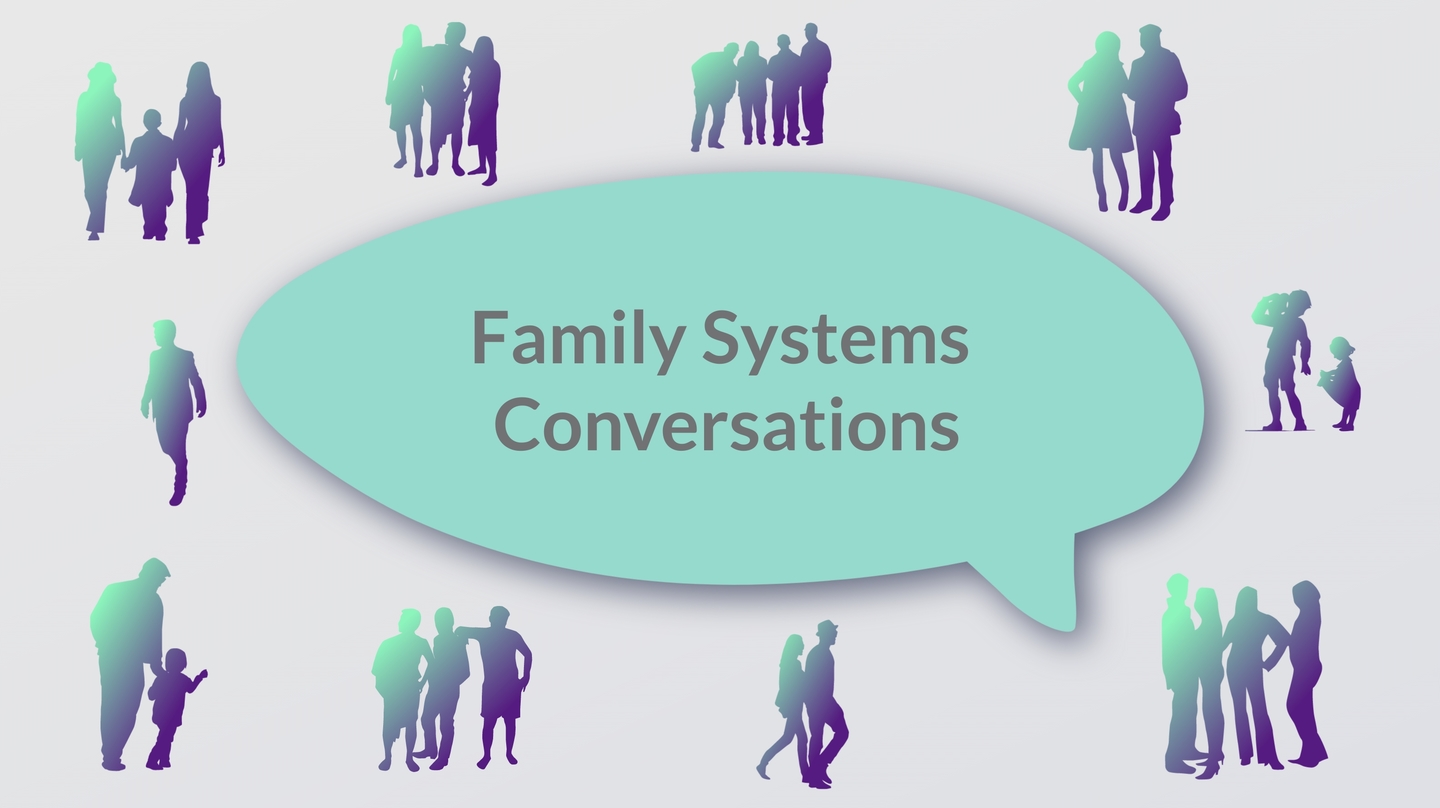Introduction, Health Care Professionals
Recommendations for Family Systems Conversations for Families with Young Cancer Survivors: Guide for Healthcare Professionals

When a person suffers from cancer the impact extends beyond the individual to parents, siblings, children, friends, and extended family[1]. A serious illness not only affects the family at the time of diagnosis but also throughout the long-term course of the illness, disrupting family dynamics and functions, and imposing ongoing emotional, psychological, and practical challenges on the members involved[2]. The suffering experienced by families dealing with childhood cancer is partly characterized by a disruption of family normalcy[3]. Healthcare professionals recognize the importance of including the family in patient care, but often struggle to assess and support families during oncology care[4]. Several studies highlight the need for greater attention to be paid to family systems care [5,6].
In addition to increasing clinical evidence indicating the beneficial influence on families of family systems conversations [7,8], several family systems interventions influenced by or derived from the Calgary models [2,9] are gaining popularity across Europe, North America, and Asia [10]. Positive outcomes for families in cognitive, affective, and behavioral aspects of family functioning have been reported as a result of family systems conversations for families affected by cancer, brain disease, heart disease, and psychiatric disorders[7].
The term 'family' encompasses not only immediate family members, but also extends to relatives, friends, neighbors, and other individuals who hold significant relational proximity to the individual. This concept can be defined as 'the family is who they say they are' [2]. In family systems care, the family is viewed as a system. Since all members of a family influence each other’s lives and health, there are many situations in healthcare where the family must be considered as a unit and a system. Therefore, it is crucial for healthcare professionals to recognize the family's situation and their need for support.A family's experience with illness can hinder members from fully recognizing their own strengths and resources, which may impact the family's efforts to recover and maintain health. Family systems conversations require a shift from solely viewing the patient as an individual, to seeing the whole family as a unit, and progressively incorporating families into health care. Family systems conversations can support families in identifying their strengths and resources, as well as provide an opportunity for them to share their stories. Healthcare professionals can support the family’s awareness and understanding of their own as well as other family members’ views, beliefs, and experiences[2].
As part of the OACCUs project, the Iceland-Family Perceived Support Questionnaire (ICE-FPSQ)[11] was used to assess families’ perceptions of the support provided by health care personnel. This instrument comprises two factors: cognitive support and emotional support. Preliminary findings indicate that family members' scores averaged in the lower range of the rating scale, suggesting that families of cancer survivors perceived they "rarely" or "almost never" received family support from healthcare personnel.
Altogether, previous research together with OACCUs findings underscore the critical importance of healthcare professionals providing comprehensive support to families. Addressing the needs of the family as a unit is paramount, as well as acknowledging the mutual influence family members have on each other. The emotional and cognitive support offered can profoundly impact the family's ability to cope with the illness, maintain their well-being, and facilitate the recovery process and health of the patient and the family. If you want to learn more about how you as a healthcare professional can enhance support for families including empowering families to support each other– click on the file.
First and foremost - THINK FAMILY!
Authors:
Susanna Pusa, RN, PhD & Britt-Inger Saveman, RN, Prof. Emerita.
Department of Nursing, Umeå University, Umeå, Sweden.
Department of Nursing, Umeå University, Umeå, Sweden.
References
[1] Coyne, E., Heynsbergh, N., & Dieperink, K. B. (2020). Acknowledging Cancer as a Family Disease: A Systematic Review of Family Care in the Cancer Setting. European journal of oncology nursing : the official journal of European Oncology Nursing Society, 49, 101841. https://doi.org/10.1016/j.ejon.2020.101841
[2] Shajani, Z., & Snell, D. (2023). Wright and Leahey’s Nurses and families: A Guide to Family Assessment and Intervention. 8th ed. Philadelphia: F.A Davis Company.
[3] West, C. H., Bell, J. M., Woodgate, R. L., & Moules, N. J. (2015). Waiting to Return to Normal: An Exploration of Family Systems Intervention in Childhood Cancer. Journal of family nursing, 21(2), 261–294. https://doi.org/10.1177/1074840715576795
[4] Coyne, E., & Dieperink, K. B. (2017). A Qualitative Exploration of Oncology Nurses' Family Assessment Practices in Denmark and Australia. Supportive care in cancer : official journal of the Multinational Association of Supportive Care in Cancer, 25(2), 559–566. https://doi.org/10.1007/s00520-016-3438-1
[5] Marklund, S., Sjödin Eriksson, E., Lindh, V., & Saveman, B. I. (2018). Family Health Conversations at a Pediatric Oncology Center - A Way for Families to Rebalance the Situation. Journal of pediatric nursing, 38, e59–e65. https://doi.org/10.1016/j.pedn.2017.10.004
[6] Svavarsdottir, E. K., Sigurdardottir, A. O., & Tryggvadottir, G. B. (2014). Strengths-oriented Therapeutic Conversations for Families of Children with Chronic Illnesses: Findings from the Landspitali University Hospital Family Nursing Implementation Project. Journal of family nursing, 20(1), 13–50. https://doi.org/10.1177/1074840713520345
[7] Bell J. M. (2016). The Central Importance of Therapeutic Conversations in Family Nursing: Can Talking Be Healing?. Journal of family nursing, 22(4), 439–449. https://doi.org/10.1177/1074840716680837
[8] Östlund, U., & Persson, C. (2014). Examining Family Responses to Family Systems Nursing Interventions: An Integrative Review. Journal of family nursing, 20(3), 259–286. https://doi.org/10.1177/1074840714542962
[9] Wright, L. M., & Bell, J. M. Beliefs and illness: A model for healing. Calgary: 4th Floor Press; 2009.
[10] Bell J. M. (2021). Bibliography: Family Systems Nursing. https://janicembell. com/bibliography‑ family‑ systems‑ nursing/
[11] Bruce, E., Dorell, Å., Lindh, V., Erlingsson, C., Lindkvist, M., & Sundin, K. (2016). Translation and Testing of the Swedish Version of Iceland-Family Perceived Support Questionnaire with Parents of Children with Congenital Heart Defects. Journal of family nursing, 22(3), 298–320. https://doi.org/10.1177/1074840716656343
